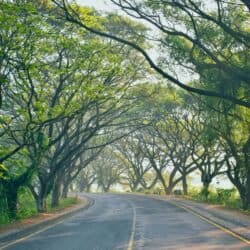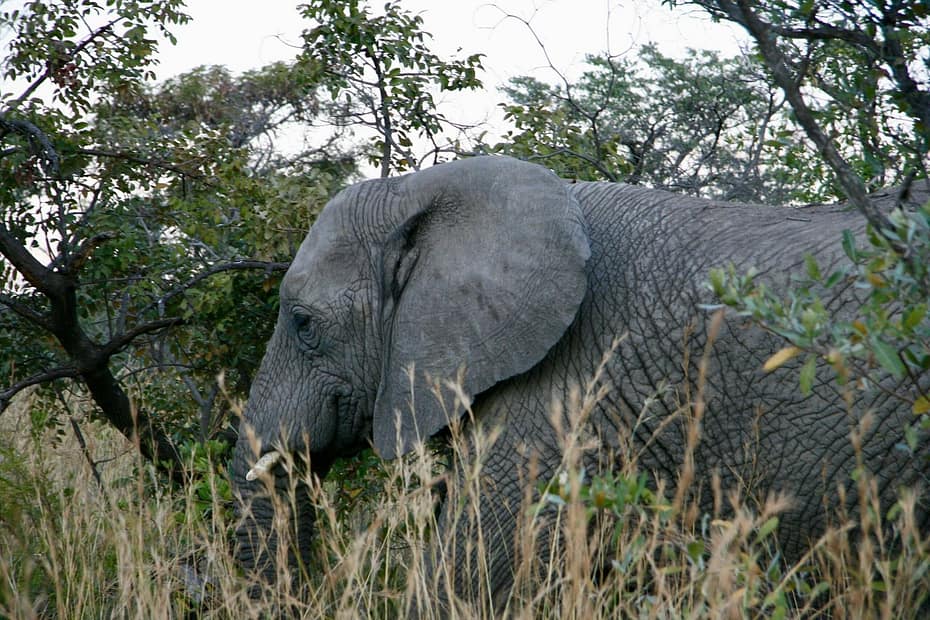Introduction to Moo Deng
Moo Deng, a captivating baby pygmy hippopotamus, was born recently at Khao Kheow Open Zoo in Thailand, a moment that has become a beacon of hope for both visitors and conservationists alike. Her arrival into the world is not only a joyful occasion but also a significant event that highlights the ongoing conservation efforts for this critically endangered species. Pygmy hippos, native to the dense forests and swamps of West Africa, are known for their unique characteristics and smaller size compared to their more familiar relatives, the common hippopotamus. Moo Deng’s birth is a testament to the dedication of wildlife professionals dedicated to protecting such rare species.
The enchanting appearance of Moo Deng has quickly captured the hearts of zoo-goers, making her a focal point for those seeking to connect with wildlife. Her wide, innocent eyes and charming demeanor have encouraged increased foot traffic at the zoo, presenting an opportunity to educate the public about the plight of pygmy hippos in their natural habitat. Given that fewer than 2,500 individuals remain in the wild, each new birth represents a crucial step towards ensuring the survival of this fascinating species. The initial reactions to Moo Deng reveal an urgent desire for connection and understanding regarding the vulnerabilities faced by pygmy hippos.
Moreover, the stories surrounding Moo Deng push an important conservation narrative to the forefront, urging visitors and advocates to engage with the challenges of biodiversity loss. As Moo Deng grows and thrives, her life will serve as a reminder of the critical importance of conservation efforts aimed at protecting the pygmy hippopotamus and their habitats. The impact of her presence at Khao Kheow Open Zoo is not merely anecdotal; it is a call to action for wildlife conservation, emphasizing her role as an ambassador of hope for all endangered species.
The Pygmy Hippopotamus: A Critically Endangered Species
The pygmy hippopotamus, known scientifically as Choeropsis liberiensis, is a distinct species native to the forests and swamps of West Africa, specifically in areas of Liberia, Ivory Coast, and Guinea. This elusive creature is notably smaller than its larger relative, the common hippopotamus, with adults typically weighing between 400 and 600 pounds. The pygmy hippopotamus has a unique lifestyle, being primarily nocturnal, which contributes to their secretive nature and makes them difficult to study in the wild.
Recent estimates suggest that the population of pygmy hippopotamuses may be as low as 2,000 individuals left in the wild. This alarming decline has classified them as critically endangered on the IUCN Red List, highlighting their vulnerable status in the animal kingdom. The primary threats confronting the pygmy hippopotamus stem from habitat loss driven by rapid deforestation and urbanization. As human populations expand and agricultural practices intensify, the natural habitats of these animals are being destroyed, resulting in fragmentation that inhibits their ability to thrive.
Moreover, hunting poses an additional danger to their dwindling numbers. Although these animals are not typically targeted by large-scale hunting operations, they are vulnerable to poaching for their meat and skin. This illegal activity further exacerbates the challenges faced by pygmy hippopotamuses and disrupts their breeding patterns. The combined effects of habitat destruction and hunting underline the urgent need for conservation efforts to protect this species.
Conserving the pygmy hippopotamus not only safeguards this unique species but also contributes to overall biodiversity in their native ecosystems. Protecting their habitats ensures that countless other flora and fauna can coexist, creating a balanced environment that fosters life.
Breeding Programs and Conservation Efforts
Breeding programs play a crucial role in the conservation of endangered species, including the pygmy hippopotamus. Zoos, particularly Khao Kheow Open Zoo, are at the forefront of these initiatives, implementing structured breeding strategies to ensure the genetic diversity and long-term survival of this vulnerable species. These programs aim to recreate natural breeding conditions within a controlled environment, enabling species to reproduce and thrive despite the challenges they face in their natural habitats, such as habitat loss and poaching.
The success of these breeding programs hinges on scientific approaches to animal husbandry, genetics, and ecology. Professionals at Khao Kheow Open Zoo utilize genetic data to select breeding pairs, minimizing inbreeding and enhancing genetic diversity within the pygmy hippopotamus population. Continuous monitoring of the health and genetics of these animals ensures that the breeding program remains sustainable and effective. Moo Deng’s birth serves as a promising testament to these efforts, highlighting the potential for conservation success when zoos commit to rigorous breeding protocols.
However, these programs are not without challenges. Factors such as inadequate resources, limited genetic material, and the complexities of animal behavior can complicate breeding efforts. The experience gained from the current breeding program not only contributes to the understanding of pygmy hippopotamus reproduction but also relays valuable insights for similar species facing extinction threats. As Moo Deng grows, she embodies hope for her species, showcasing the impact of dedicated conservation efforts.
Furthermore, collaboration among institutions enhances these breeding initiatives, fostering knowledge sharing that can boost global conservation strategies. Inspired by the success seen at Khao Kheow Open Zoo with Moo Deng, other facilities worldwide are encouraged to adopt similar methodologies, emphasizing the importance of breeding programs in ensuring the continued existence of endangered species like the pygmy hippopotamus.
Inspiring Awareness for Conservation
The story of Moo Deng, a baby pygmy hippopotamus, serves as a poignant reminder of the delicate balance that exists in our ecosystems and the urgent need for conservation. As an endangered species, the pygmy hippopotamus faces numerous threats, including habitat loss due to deforestation and poaching. Moo Deng’s journey offers an opportunity to shed light on these pressing issues and advocate for concrete actions that support wildlife protection and preservation.
Raising awareness about the plight of endangered animals like Moo Deng is vital. By sharing her story, we can encourage people to engage with and contribute to conservation efforts. Educating the public about the significance of protecting natural habitats will foster a deeper appreciation for biodiversity. Additionally, responsible tourism can play a crucial role in conservation; when individuals choose eco-friendly travel options, they directly support sustainable practices that benefit local ecosystems and their wildlife inhabitants.
Moreover, Moo Deng’s story can inspire individuals to participate in conservation campaigns actively. These initiatives often rely on community involvement, and by rallying support, we can address the challenges that threaten endangered species. Simple actions, such as participating in clean-up drives or supporting local conservation groups, lead to collective change. Sharing her journey through various platforms raises visibility not only for the pygmy hippopotamus but also for the multifaceted issues surrounding wildlife conservation.
By becoming advocates for endangered species, we sow the seeds of awareness that can flourish into substantial action. It is imperative that we recognize our role in protecting wildlife for future generations. Every individual’s effort counts, and together, we can create a world where stories like Moo Deng’s are not just hopeful tales but a reality of thriving species and preserved habitats. Engaging the community in these vital discussions ensures that the importance of conservation remains at the forefront of public consciousness.

